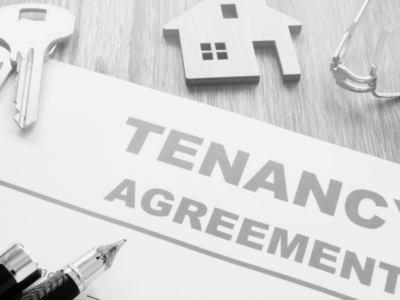Under s.82 of the Coronavirus Act 2020, a moratorium has been imposed on all landlords in England who have been prevented form forfeiting commercial leases on grounds of arrears with effect from 26 March 2020.
Those restrictions are currently due to come to an end on 25 March 2022.
Additionally, landlords have also been subjected to restrictions on their ability to exercise Commercial Rent Arrears Recovery (CRAR) or issuing winding up petitions where tenants have built up arrears.
As things currently stand, those restrictions are also due to expire on 25 March 2022 and 31 March 2022 respectively.
But with the forthcoming enactment of the Commercial Rent (Coronavirus) Bill and the publication of the Code of Practice for commercial property, what should landlords do now prior to the moratorium coming to an end? Here are our top tips:
Try to agree terms for recovering arrears
The new Code of Practice encourages landlords and tenants to try to agree terms and their own payment plan for any rent arrears, even if the tenant’s business falls outside the scope of the Commercial Rent (Coronavirus) Bill or the rent arrears were accrued either before or after the ring-fenced period.
If you have already reached an agreement with your tenant, that will not be affected by the forthcoming legislative changes actually and should be adhered to by the parties.
If you intend to pursue a debt claim think carefully
More than ever it is important to consider if this will tip your tenant into an insolvency situation and you should be aware of the arbitration provisions that will potentially apply under the new Bill.
Understand the forthcoming Commercial Rent (Coronavirus) Bill
This ring fences certain rent arrears. The Bill is likely to be passed by Parliament on or before 25 March 2022.
The ring-fenced period differs depending on the nature of the tenant’s business and is based on the period for which businesses were mandated to be closed.
Some businesses such as offices, hardware stores, convenience stores are excluded.
For clothes shops, the ring-fenced period is 21 March 2020 to 12 April 2020 and for cafés it is 21 March 2020 to 18 July 2020.
If your tenant’s business is covered by the Bill (as currently drafted), your ability to present a winding up or bankruptcy petition will be restricted.
When the Bill is passed into law, there will be a 6 month period for either landlord or tenant to refer the arrears to arbitration.
During that 6 month period and any subsequent time during which an arbitration process is proceeding, landlords will be prevented from presenting petitions or drawing down on any rent deposits they hold.
Where the arrears are caught by the Bill, if any debt claim is issued by landlords, either party (which is likely to be the tenant), can apply to the court for the proceedings to be stayed and referred to arbitration under the scheme that is being introduced.
If the arbitration scheme is invoked, it will become binding on the parties.
Winding up petition
Historically, of course, landlords have always had options which included issuing a debt claim or even presenting a winding up petition with a view to putting tenant companies into compulsory liquidation.
Unsurprisingly, as a result of the moratorium imposed in response to the pandemic, the number of compulsory liquidations in 2021 was at an all-time low, but if your tenant’s arrears pre-date the pandemic or have arisen due to factors unconnected with Covid-19, it might still be possible to proceed with a petition.
Rent deposits
If you have not already utilised your tenant’s rent deposit, now is the time to do so before the Bill becomes law.
Under the proposed legislation, if your tenant’s business is protected under the Bill, landlords are prevented from drawing down on any rent deposits they hold during the initial 6 month period or whilst arbitration is underway.
Tenants are not obligated to top up their rent deposits during this time.
Think strategically
Regardless of the above, it may of course, be commercially attractive to obtain vacant possession of your premises rather than retain your current tenants.
In some parts of the country demand for space is increasing and so too are rents.
A local market agent can advise if your premises are currently under-rented.
Although your tenants might be in occupation within the security of tenure provisions of the Landlord and Tenant Act 1954, opportunities might exist to recover possession.
For example:
- Inspect your buildings – now that the tight restrictions on social distancing have been lifted, if you have not already done so, take the opportunity to arrange inspections of your premises to check their current condition and establish if there are other breaches of the lease (apart from non-payment of rent);
- Consider re-purposing – the amendments made to the Use Classes Order that came into effect on 1 September 2020 has encouraged some landowners and landlords to consider the use of their properties.
Major property investments are being made with a view to re-purposing out of date retail space into mixed use schemes;
- Forfeiture – landlords are not at risk of waiving a right to forfeit for rent arrears during the current moratorium.
Nevertheless, as with all situations where forfeiture is being contemplated, seek early advice and be careful about inadvertently waiving a right to forfeit.
It remains to be seen what further practical requirements (if any) will be introduced to regulate how landlords can exercise forfeiture, but it would be sensible to undertake this review before rent demands for March quarter are issued.
Despite the easing of pandemic related restrictions, the Government is hoping landlords will still be reasonable especially where tenants were adversely affected by COVID factors, like retail and leisure sector businesses who still need time to find their feet.
Unfortunately, many landlords are no longer in a position to soft-pedal; interest rates are rising and for many commercial imperatives and shareholder pressure will be kicking in.
We certainly expect a rise in rent disputes now that gloves are coming off but landlords should think ahead as to what they are trying to achieve before they decide their next move and the right course of action.





















Comments